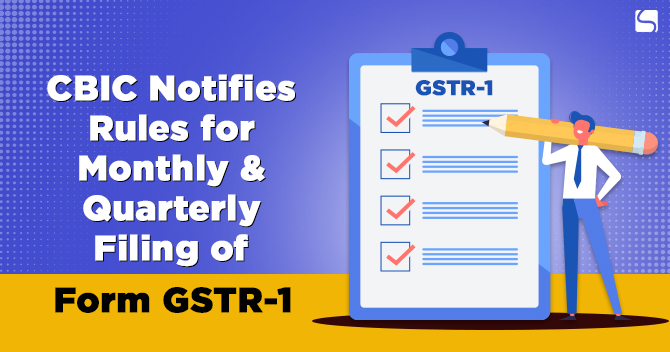Procedure for Issue of Sweat Equity Shares in India

Swarit Advisors | Updated: Aug 29, 2019 | Category: News, SEBI Advisory
Sweat Equity Shares are issued by the Company to give recognition to its employees for their work. It is one of the methods through which the Company makes the share-based payment to its employees. Sweat equity shares is a reward given to employees for their contribution to the development of the Company. Equity Shares encourages an employee to work for the benefit of the company by encouraging them for their stake and helps the company to retain its employees for a long period.
Table of Contents
Defining Sweat Equity Share as per the Companies Act, 2013
As per Section 2(88) of Companies Act, 2013, Sweat Equity Shares means equity shares issued by a company to its director or employee at discount or for consideration other than cash, for providing know-how or making available like intellectual property rights or value addition.
Eligibility
Following are eligible for sweat equity shares:
- Permanent employee of the Company. Such employees must be working either in India or Outside India for at least 1 year.
- Permanent employee of the subsidiary or a holding company working in a Company for more than 1 year.
- Director of the company excluding Independent director
Conditions to be fulfilled for the issue of Sweat Equity Shares
Following are the conditions to be fulfilled by the company before issuing sweat equity shares:
- A special resolution shall be passed for authorizing the issue of sweat equity share.
- Listed companies need to follow provisions of SEBI for issue & unlisted company can issue as per Section 54 of Companies Act, 2013.
- Sweat equity shares can be issued by the company only after the expiry of one year from the date of commencement of business.
- The company can issue sweat equity shares up to the higher of two:
• 15% of existing paid-up share capital
• INR 5 Crore.
Subject to 25% of the paid capital of the Company.
- The sweat equity shares shall be issued with a lock-in period of three years.
- Mention the fact that shares are locked-in along with the expiry of the lock-in period in the share certificate.
- Shares issued at a fair price that is valued by a registered valuer.
- Amount of sweat equity shares can be treated as managerial remuneration if it fulfills the following condition:
• It is issued to the director or manager
• They are issued for non-cash consideration
- The details of issue & allotment of sweat equity shares shall be mentioned in the board report along with the following details:
• Class of directors
• Class of shares
• Number of shares issued
• The formula used for valuation
• Percentage of sweat equity of the total post-issue paid-up capital
• Consideration received or benefits to the company from the issue.
- In case the shares are issued for non-cash consideration, it shall be treated in the books of account of a company:
• When it takes the form of a depreciable asset, it shall be carried to the balance sheet.
• In other cases, it is treated as expenses as per accounting standard.
Quantum for Issue of Sweat Equity Shares
Following are the limits for the issue of sweat equity share:
- The issue cannot exceed the higher of the following:
- 15% of existing paid-up equity capital
- Issue value of INR 5 Crore
- Issue cannot exceed 25% of the paid-up equity capital at any time.
- For the new start, the company issue cannot be more than 50% of its paid-up capital for 5 years from the date of incorporation.
Procedure for the Issue of Sweat Equity Share
Following is the step-by-step procedure for the issue of sweat equity shares:
- Call & convene the board meeting with at least 7 days notice for discussing following agendas:
- Consideration of proposal of issue of sweat equity shares
- Fixing up the date, day, time, venue & agenda for calling the EGM
- An unlisted public company has to issue the notice for a general meeting at least 21 clear days before the date of the meeting. It can be called at shorter notice with the consent of 95% of shareholders is received for the same.
- The explanatory statement shall be annexed with a notice which shall contain the following details:
- Date of Board Meeting for approving the proposal
- Reasons for such an issue
- Class of shares to be issued
- Total number of shares to be issued
- Class of the directors/employees to whom such shares are proposed to be issued
- Price at which sweat equity is issued
- Consideration or non-consideration received for the issue of sweat equity share
- A statement declaring that the company will follow the applicable accounting standard.
- Diluted EPS after the issue of shares
- Principle terms & conditions for such issue
- Hold and convene the proper executed General meeting and pass the necessary resolution for the approval of the issue of sweat equity share.
- Within 30 days of passing the resolution, file form MGT-14 with Registrar intimating the registrar of the passing of the resolution.
- After the resolution is filed, call the next board meeting for the allotment of sweat equity shares.
- After passing the resolution for allotment of shares, file form PAS-3 with the registrar within 30 days of passing board resolution.
- The company shall maintain the register after allotment of shares. Such register of sweat equity shares shall be maintained in form SH-3 with all the details & particulars of Sweat equity shares.
Pricing of an Issue
The price of an issue shall be the value based on the price determined by a registered valuer as to the fair price. He shall justify reaching a certain value. The registered valuer shall carry the valuation of
- Know-how
- Intellectual property rights
- Value addition for the sweat equity
Along with that, he needs to give certified reports addressed to the board with proper justification & clarification for reaching out to the fair value for an issue. This report needs to be sent to all the shareholders as an attachment with the notice of the general meeting.
Post-issue Disclosure
Following disclosure are required to be disclosed in the board’s report for the year in which issue is made:
- Class of directors/employees to whom shares were issued
- Class of shares issued
- A total number of shares issued to directors, employees, KMP
- Bifurcation of the shares issued for cash consideration and non-cash consideration
- Reason for the sweat equity issue
- Terms & conditions under which issue is made along with the pricing formula used.
- Percentage of the sweat equity shares of the total post-issue capital
- Diluted EPS
Benefits of Sweat Equity for Employees
Companies those incentivizes their employee by issuing sweat equity gets the benefit of both the growth of its business along with the quality of work from their employees. From the employer’s point of view, sweat equity shares help to keep their employees faithful towards the company for a longer period, as shares are issued with the lock-in period of 3 years. However, sweat equity shares are taxable in the hands of employees.
Conclusion
Also, Read: Advantages and Disadvantages of Public Issue.














